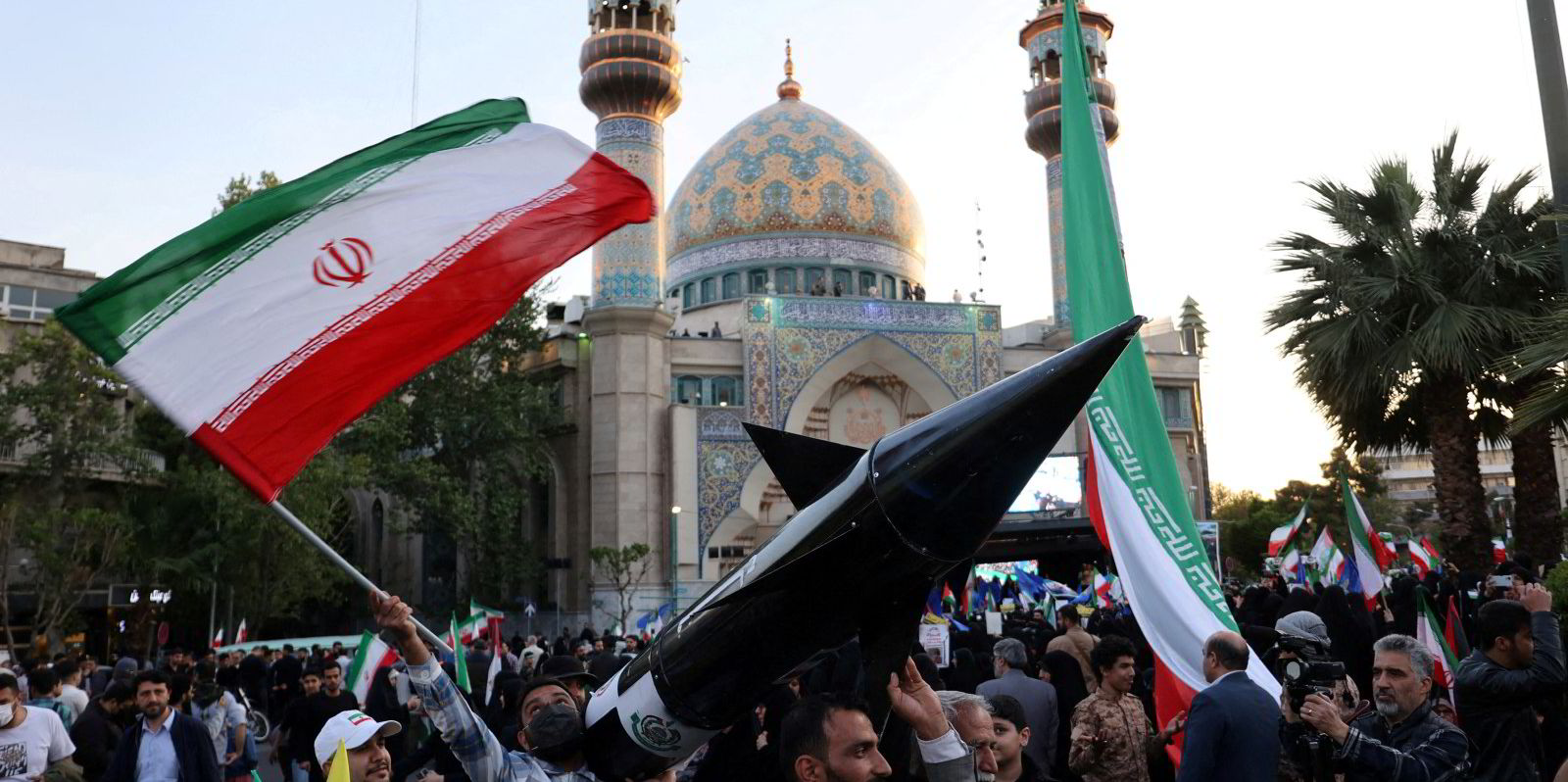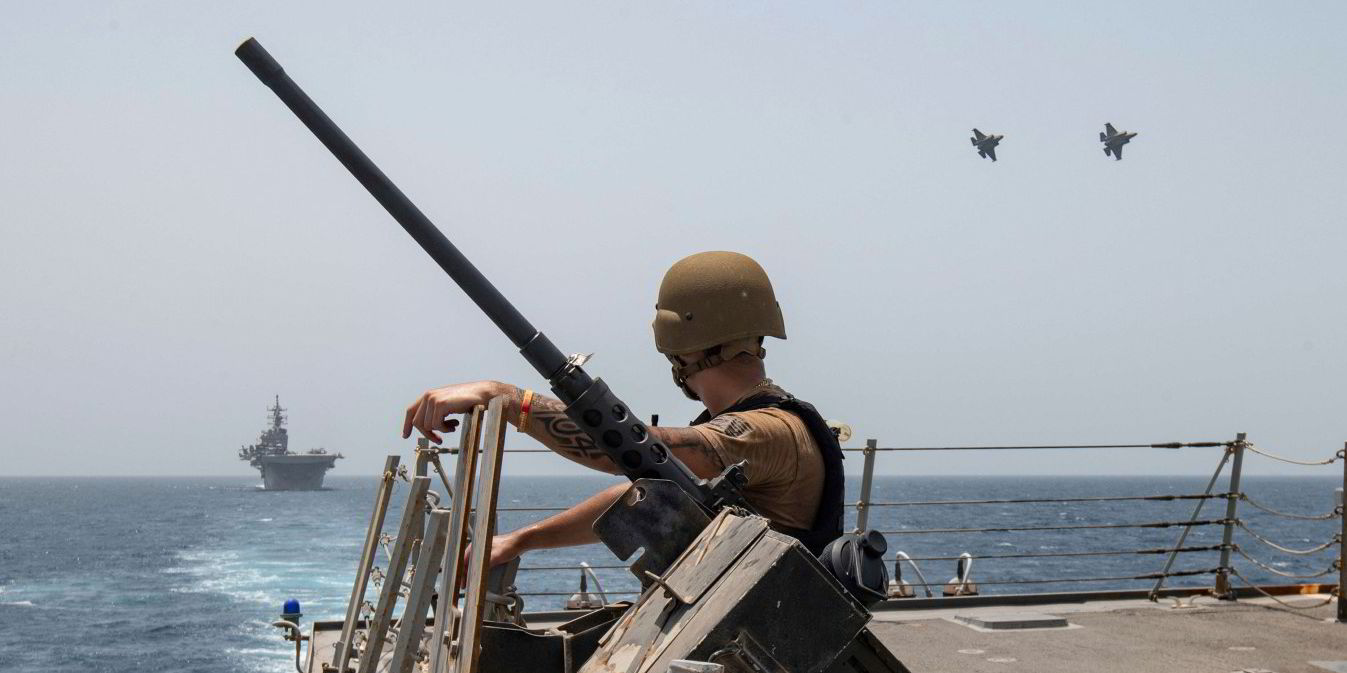The US is likely to come under pressure to tackle historically high levels of shadow fleet shipments of sanctioned Iranian oil as a price for reining in Israeli retaliation against Tehran, according to analysts.
Iran exported 1.5m barrels per day of crude in March despite measures by the US to crack down on the trade.
The seizure of the 15,000-teu MSC Aries (built 2020) by Iranian forces and an attack against Israel involving hundreds of missiles and drones at the weekend has left oil markets awaiting the next steps in the conflict with trepidation.
Israel, which has been lobbied by the US and other allies not to escalate the crisis, may seek further and tougher moves against the Iranian oil trade as a price for toeing the line, according to Ole Hvalbye, a commodities analyst at Sweden’s SEB.
“The enforcement of such sanctions, particularly on Iranian oil exports, could result in a loss of anywhere between 0.5m to 1m bpd of oil supply,” he said.
“If Israel chooses not to respond forcefully [to the attacks], the US may be compelled to promise stronger enforcement of sanctions on Iranian oil exports.
“Consequently, Iranian oil exports are at risk, regardless of whether a wider confrontation ensues in the Middle East.”
About 80% of Iranian crude exports go to China and its private “teapot” refineries, rather than to the major state players. The US, under former president Donald Trump, reimposed sanctions on Tehran in 2019.
China has traditionally specialised in securing crude at below-market prices for its refineries, said Viktor Katona, lead crude analyst at data analytics company Kpler.
With US sanctions lifted against Venezuelan crude under an arrangement that is due to end this week, Iranian oil is the main crude on the market currently selling at significant discounts, he said.
The US House of Representatives overwhelmingly passed a measure on Monday aimed at limiting Chinese purchases of Iranian oil as part of a package of bills introduced following Iran’s attack on Israel.
The move is aimed at hampering deals by hitting Chinese financial institutions with secondary sanctions if they are involved in Iranian oil deals. But it still needs to be passed by the Senate.
Iran’s oil exports increased significantly last year amid suggestions that Washington was focused on ensuring global supplies kept flowing to avoid the damaging effects of petrol pump price rises in an election year.
Any crackdown on Iran, allied to uncertainties over Opec+ production, could keep prices high, even as Brent crude tops $90 per barrel.
“It is tempting to say that the US will avoid doing anything that will drive up oil prices, but the seriousness of the current situation means such an outcome still cannot be disregarded,” said Ole-Rikard Hammer, senior analyst for oil and tanker markets at Arctic Securities.
Prices have remained relatively stable despite the missile attack, with Iran and Israel’s allies seeking to contain the latest spike in tensions.
Rystad senior vice president Jorge Leon said geopolitics will play an even bigger role in the oil market in the coming weeks.
“One thing is for certain: volatility is here to stay,” he said.
Read more
- Amid outrage over Iranian seizure of container ship, focus switches to release of crew
- Iran ship seizure sparks tensions, leaving oil and tanker markets on alert
- ‘Reprehensible attack’: ICS urges immediate release of MSC Aries by Iran
- Iran seizes container ship linked to MSC and Zodiac in Strait of Hormuz
- Houthi attacks open Red Sea as Russian oil shipment corridor as Western and Chinese owners pull back





